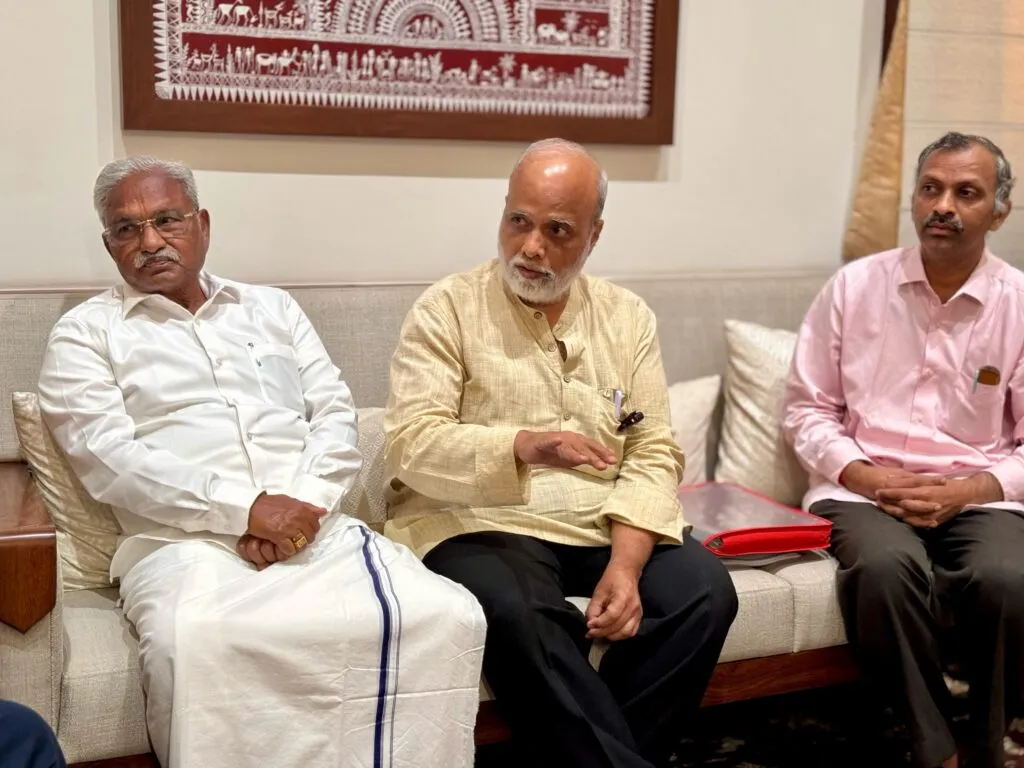Rahul Gandhi Meets IDBI Bank Employees Opposing Privatization

| ➡️ Get instant news updates on Whatsapp. Click here to join our Whatsapp Group. |
Leader of Opposition (LoP) Shri Rahul Gandhi met with a delegation of IDBI Bank employees in Parliament today, where they strongly voiced their opposition to the government’s plan to privatize the bank. The meeting provided a platform for the employees to express their concerns about the potential consequences of the move and the government’s failure to honor past commitments.

Employees Oppose Privatization, Cite Past Assurance
There is news that the government of India is planning to divest its stake in IDBI Bank. At present, the government holds 45.48 per cent in IDBI Bank, while LIC’s shareholding is 49.24 per cent.
During the discussion, the IDBI Bank employees emphasized that the BJP-led NDA government in 2003 had given a clear assurance regarding the bank’s public sector status. They expressed their disappointment that this commitment is now being disregarded, raising questions about the government’s reliability on policy matters.

The employees pointed out that IDBI Bank is a profitable institution, and selling it to private entities would be an unnecessary and harmful step. They stressed that privatization would not only affect the bank’s workforce but also have a wider impact on the public and the nation’s financial sector.

Concerns Over National Interest and Public Welfare
The delegation highlighted several risks associated with the privatization of IDBI Bank:
- Adverse Impact on Public Welfare – IDBI Bank, as a public sector institution, plays a crucial role in providing financial services to various sectors, including small businesses and rural areas. Privatization could lead to a shift in priorities, focusing more on profits rather than public service.
- Job Security of Employees – The employees expressed deep concerns about the future of thousands of staff members who have dedicated their careers to IDBI Bank. They fear that privatization could lead to job losses, reduced benefits, and an overall decline in employee welfare.
- Loss of Government Control in Banking Sector – The delegation warned that selling a profitable public sector bank to private entities could weaken the government’s role in ensuring financial stability and economic growth.
- Profit-Driven Approach – Unlike public sector banks, which focus on inclusive banking and national development, private owners may prioritize profits over the interests of common citizens, leading to higher service charges, reduced accessibility, and exclusion of marginalized communities.

Rahul Gandhi’s Support for Employees
Shri Rahul Gandhi listened to the employees’ concerns and assured them of his support. He reaffirmed his commitment to protecting public sector institutions and preventing policies that could harm the workforce and the general public.

Why are bankers relying on this clown for the fulfilment of their demands? He is only good at conducting caste census, nothing more.